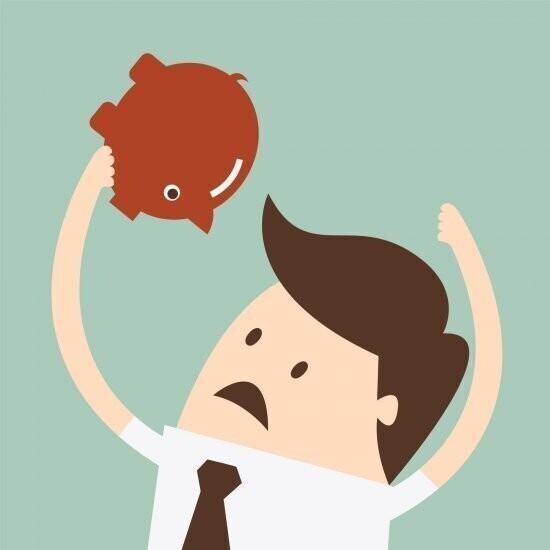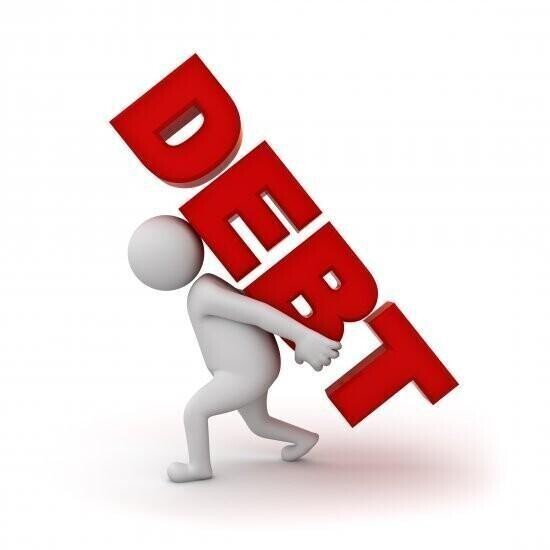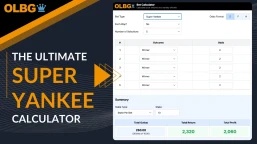
Many people bet based on headlines or hunches. I dig into research and market moves behind political odds & manager markets, so you can back decisions, not guesses.
Responsible Gambling can be fun and enjoyable if managed well.
Most people enter into the world of gambling by having early home experiences of events like the Grand National, Epsom Derby or FA Cup Final.
Perhaps a visit to a racecourse resulted in an enjoyable and exciting experience that incites interest in finding out more about just what gambling actually involves.
BeGambleAware
The process of developing an interest in gambling is usually taken slowly and most novice punters keep stakes very low until they feel more confident.
But stakes can rise off the back of a good win, or even more problematic, off the back of several losses.
This guide is about trying to help you keep your gambling activity within your limits, to ensure it remains fun and that you stay in control.

Research your bets
If you're betting on things without doing any research then it's time to step back, doing the research means:
- You understand the various risks
- You get more satisfaction from your wins
- You can learn from your losses
If you make a bet solely picked at random or just on the word of someone else then this could lead you into problems.
It's one thing to see some information on a site and use that as a lead to further research, but quite another to blindly follow someone's advice.

If you want to bet, rather than just taking a cursory look, pick your bet in a measured way where you understand all the variables.
How can I improve my approach to gambling?
Gambling can be a lot of fun if you're sensible about it.
You should set yourself a maximum you can lose in a month, and if you hit that, you stop.
That way, it never becomes a problem- just a budgeted expense that can also return you a profit!
Having given yourself a "pot" to play with during a month, divide this up so that you can only risk a certain amount a day (maybe a quarter of your initial pot); otherwise, you are probably betting more than you can afford and it pretty likely you could run out of money quickly.
Also, set maximum stakes based on this - generally, a bet of 10% of your pot would be considered a big bet, and 1% a small bet. If you're betting more than that, unless you are fortunate, you are on your way to "gambler's ruin".
If You Can Not Manage Your Betting Budget
BeGambleAware
One of the OLBG Betting Experts wrote an excellent article on How to approach betting on the NBA.
The text highlights his strategy on basketball betting but is relevant to most sports.
Keeping up to date betting records
The most important aspect of making sure your gambling remains a positive experience is to keep a thorough check on how much you are spending.

Make Money Betting, Have a Betting Plan and Be Businesslike
With that in mind it is surprising how few people actually take the time to check the amount gambling costs them.
If there are no checks in place to see what your outlay and profit and loss are over a period of your choice, then it is likely to become hazy as to just how much your interest in gambling is costing you.
The easiest way to keep a record is to have a separate bank account only for gambling.

Place whatever amount you feel comfortable spending in, say, one month into this account and then link all your online bookmakers to this bank account.
Let’s say you start the month with £100 and at the end of the month you have £35 left then it is clear that you have lost £65 over the month.
Then you need to make a judgement call if you are comfortable losing that kind of amount in a month and, if not, drop the amount for next month down to something like £50.
If you can’t organise having a separate bank account for your betting you could do either of the following to ensure you know exactly how much you are spending:
Bet Only What You Can Comfortably Afford To Lose
You should decide that if you are going to bet, at the start of the month identify what your budget is and put aside an amount that will have no detrimental effect on your life, payments or family if you were to lose it.
Place your monthly amount into one bookmaker account. If you lose that amount before the end of the month - STOP
Again, this method has its disadvantages as it means you are restricted to using just one bookmaker,
However you could spread the amount across more than one account but it will ensure you know your profit and loss at the end of the period
Most bookmakers provide a record of the bets that you have had, it provides an easy way to analyse the good and bad bets that you have had in that period.

Of course, you can just use your existing bank account for your betting but if you have lots of other items coming in and out of your account this can make the accounting process much more difficult to do.
It is essential to know how much you are betting each week or month and how much you have won or lost in that time.
Reviewing my bets - what should I be looking out for?
Look at the amount you have been staking, and if you conclude that you have been betting too much, drop the average amount staked by, say, 50% to coincide with the overall reduction you are depositing into your betting account.
Repeat this analysis process every month (or 3, 6 or 12 months as you get more comfortable) whilst remembering to keep an overall profit and loss figure for each year.

Keeping detailed records in any form of life is not everyone's cup of tea, but if you are keen to focus on the sports or events where you do best, consider taking your betting records to the next level.
Keep a basic spreadsheet that details the date, amount, sport, and event, then calculate each bet's profit and loss.
Then, keep a running total of your profit and loss to examine and analyse where you are making the most profit (and the most significant losses).
The amount of detail you want to add to your records is entirely up to you, but it is usually a good idea to have some way that you can see your profit and loss on each sport.
How often should I bet?
The volume question arises fairly quickly after someone starts recording their bets, as they suddenly become aware that they are placing many more bets than they realise.
If recording your bets starts to become a real chore, then you are probably betting too often. However, questions like this are purely a matter of taste for each individual.
Are you the sort of gambler who likes to bet little and often? If so, physically recording hundreds of bets per month might not be time-productive, and you may be better off just relying on the monthly profit and loss figure mentioned in the earlier paragraph.

You may also be concerned that keeping a record for a month has revealed that you bet too often.
You should analyse your bets in-depth and consider cutting out bets on a sport that isn't profitable or reducing your overall stake level.
You may also focus on the most profitable areas you enjoy.
Keep a note of any free bets that you receive when recording profit and loss.
How much should I bet?
The first thing to remember here is that you should only bet an amount you can afford to lose.
It can be very easy to get carried away in the moment if you are at the races with friends or enjoying a night out in a casino or at a greyhound track, but try and remember to ask yourself the question of - how am I going to feel tomorrow if I have lost a lot of money?

The question of staking is difficult, but it always needs to reflect your current financial situation. Every bet you stake has the chance to be a loser, and you need to be aware that long-losing runs are sometimes inevitable. All gamblers need to make a judgement call as to how much losing the amount they are staking would impact their life outside gambling.
An OLBG member asked "how much should be i bet on a certainty" - Thankfully, other members aware of sensible gambling came to the rescue quickly, explaining that there is no such thing as a sure bet.
Imagine placing a well-researched bet now, and you will most likely have an immediate idea about the amount you feel comfortable staking.
Then envisage yourself handing over the money, and if you feel uncomfortable at the amount involved, reduce it until it does not give you cause for concern.
The opposite also has to be true in that it has to be enough that if you win, it will mean something. Still, by trying to gauge a figure by imagining these two scenarios, you should come up with a general stake amount you are comfortable with.
Set a Daily Stop Loss
As well as setting budgets and staking limits, it's essential to set limits on how much you can allow yourself to lose in a day.
One of the biggest mistakes you can make (as discussed below) is to chase losses by effectively altering your strategy.
The best way to recover from a loss is to have a slow and calculated approach, waiting for the right opportunities and doing it bit by bit, not trying to do it in one large "all or nothing bet".
There is no such thing as a Certainty in Gambling
Your Guide To Understanding Probability Here
Set a Daily Stop Win
It's easy to get carried away when you win and think you are invincible. For example, if you work out three horses you like on the day's cards at the start of the day, leave it at that.
If they win, don't get greedy and start looking for other opportunities that weren't there that morning. All you are doing is making bad bets, and you'll probably give back some of your winnings.
Do You Feel You Struggle to Manage How Much You Bet?
BeGambleAware
My friends all stake more than me, should I increase my stakes?
Absolutely not.

All of us should all only stake amounts we are comfortable with.
If your friends are staking amounts you would be uncomfortable with then stick to what you are happy with.
Imagine how you will feel if you stake above your comfort zone and your selection loses?
I’m on a bad run but surely my luck will turn soon?
One of the worst approaches you can take in gambling is telling yourself that a bad run of luck must turn soon.
A bad run of luck can also turn into chasing losses and making other poorly judged betting decisions, leading to more significant losses, debt and worse.

Thinking that luck is against you and will surely turn in your favour eventually, more often than not, leads to further bad decisions and, finally, to problem gambling.
Chasing losses is the quickest way for gambling to become a problem as, in this situation, the decisions you are making become more and more about trying to win back the losses already incurred rather than being an informed judgment based on form and value.
If you feel you are starting to chase your losses, that is the time to walk away, take a break, and then evaluate the bets you have been making that brought you to that point.
Admitting to yourself that things are getting out of hand can be the hardest thing to do - but if you are worried, you should seek professional help.
Your Bad Luck is Probably Bad Decisions!
BeGambleAware
Betting on Things You Don't Understand
If you don't understand a sport or a bet and haven't researched it, don't bet on it.
It's less fun, and you're far more likely to lose.
The above refers to betting on sports you don't follow closely or using bet types you need to become more familiar with.
In some cases, you might not even realise that you've won!
Gambling Greed
Being greedy is not the way to be successful as well as not over betting, it's also important to be realistic in your bets.
If you're betting on 12 team football accumulators then unless you get really lucky you are going to lose every week.
The best betting sites are experts at developing new and interesting markets for you to bet on.
However most of these are devised so they can make some good money out of you by coming up with bets that are a bit more complex and it can often be not so easy to spot that the odds offered are terrible value.
Some of the longer priced bets like correct score, scorecast, first goal scorers are generally poor value and likely to erode your bank.
BeGambleAware
A better approach is not to look for stuff to bet on, but to look for good value bets and maybe stick to doubles and trebles at most and limit the bigger multiple bets.
Betting at Bad Odds
The difference between the odds offered by bookmakers can be substantial - as much as 50% and regularly 20%.
So if you're not getting the best odds when you do win then you are going to need more winners to make the same money - that can't be good.

Master the Art of Value Betting and Maximize Your Winnings
Make sure you have a choice of accounts to choose from so you have every chance of snapping up that value early morning price!
Many many punters don't understand how much of an increase in profits you will generate just by a small increase in odds.
Typically if you can get 20% better odds on average then your profits won’t increase by 20%, they will increase by 100%+.
If you have a problem it's not as easy as to simply say don't bet at bad odds.
You have to understand how to make value bets only.
Betting and alcohol don’t mix
Whenever you tend to hear stories where gambling has gone horribly wrong it is often the case that the big losses have been incurred at a time when more than a usual amount of alcohol was involved in the equation as well.
OLBG members have recalled drunken bets and the subsequent regret
If you are drinking don't bet, it is as simple as that
Alcohol can reduce inhibitions and this is not always a good idea when gambling is also part of the equation.
Taking risks with gambling you would normally never consider without the influence of alcohol almost always turn out badly.
Try to keep gambling and alcohol separate.
BeGambleAware
Betting What You Can't Afford to Lose
This is a difficult area as the thrill of betting is the element of risk so if you bet very low stakes then it really isn't going to be much different to not betting at all.
However, the key is that you must be prepared for every bet you make to be a loser and if this happens then while you may be disappointed it should not be a serious issue.
If you feel you have a problem with gambling there is lots of information available that can help and various restrictions you can choose to apply to your betting accounts if you are concerned you have a problem:
Use Bookie Deposit Limits
Most bookies these days allow you to set a maximum daily deposit amount and also change those limits when circumstances change.
This can be extremely useful if you are not the most disciplined of punters.
Set this limit to what you would be comfortable with losing each day and then you should avoid running into any problems.
BeGambleAware
Below is an example of the features that one bookmaker has in relation to safe gambling.
- Deposit Limit
- Loss Limit
- Session Limit
- Wagering Limits
- Reality Check
- Time-Out
- Self-Exclusion
- Support Groups & Organisations
- Advice on Keeping in Control
- Parental Controls
- Self-Assessment
Take a Break From Time to Time
Sometimes you just need to step back and clear your head.
The rush of a series of wins can make you overconfident as can the distress of a big loss.
A gut reaction bet is rarely the solution. If you find you can't take a few days out then you have a problem.
Keep gambling fun
Most of all, gambling is meant to be enjoyable.
If, after applying all the advice given above, you feel that gambling is causing you stress or financial concerns then it may be best to give gambling a long break or even consider removing it from your life.
BeGambleAware
10 More Top Tips for Betting with Discipline
Stick To What You Know
It's tempting to bet on anything and everything you are interested in, particularly if you can watch that event.
However, the sports and events you are most likely to win money on are those you know the most about, so it is almost impossible to make money on sports or events you don't know.
The tipsters who do well in the OLBG tipping competition are those that know about the sport they are tipping on.
This is because the only way to beat the bookies is to know more than them or to be highly selective with your bets; either way, you won't be placing plenty of bets on a variety of sports or events that you don't follow that closely.
Start A Betting Bank
One of the best ways to encourage betting discipline is to set yourself a strict betting bank.
Separate your betting bank from your day-to-day money and your usual bank account, and only bet out of your betting bank.
This approach will detect fluctuations in profit and loss more quickly, which means betting won't impact your day-to-day finances. The amount of your betting bank will be determined by how comfortable you are with risk and how much disposable income you have.
You should only put money into your betting bank that you rely on for what is necessary. All bets should only be made with money you can afford to lose. If you get through your betting bank quickly, it is probably time to take a break from gambling.
Don't Bet For Fun
It is often tempting to place 'fun bets' on events you are interested in but have yet to find an edge.
Fun bets are usually based more on gut instinct than research and are therefore more likely to be losing bets - and losing money isn't fun, even if the stakes are smaller than your usual bets.
If you need a 'fun bet' to enjoy an event you are watching, it's time to switch that event off and not watch it.
Place Only Your Planned Bets
Decide what events and outcomes you want to bet on a day or two before the event (the time before varies depending on the sport and odds availability), then stop placing bets.
This can be easier than it sounds, as you can find yourself getting sucked into placing more vets for a variety of reasons, be it chasing, wanting a fun bet, stumbling upon new information, or anything else.
If you find this difficult, place your bets and then find something else to occupy yourself with whilst your bets are taking place: go shopping, visit some friends or do some much-needed DIY around the house.
If you want to watch the event you have bet on, try Sky Plussing or watch it online after it's happened; that way, you can't bet on it while watching it.
Don't Ever Chase Losses
Chasing is one of the worst habits a punter can have and one of the hardest lousy betting habits to kick.
Chasing losses occurs when you've had a bad day betting and try to win back that lost money by placing more bets. These bets won't be the planned bets that you placed at the start of the day but instead are bets on any event later that day or weekend.
Chasing is terrible because it shows a distinct lack of discipline.

Discipline and Gambling. Not that again?
The bets placed when chasing your losses are less confident than your initial bets that lost; otherwise, they would have been placed with your initial bets. When it comes to chasing, the pool of events to bet on will have narrowed, so the chances of finding decent bets are slim.
Chasing bets works on some occasions, and you make your money back, but in the long run, it is highly likely that if your more confident bets aren't winning, then your less confident bets are very unlikely to yield a profit.
Instead of chasing, put more time into researching your bets or read more of the OLBG Betting School for more helpful advice on betting strategy and how to bet on individual sports.
Learn From Your Mistakes
The most disciplined punters will always learn from their mistakes.
Throughout your betting life, your betting habits will be forced to evolve due to several factors, and one of those reasons should be learning from your mistakes.
Over time, you will figure out that certain sports and markets don't suit your betting habits, and the quicker you can avoid betting on those sports and markets, the sooner you should be making more profit.

Betting Tips - Hints to Help Improve Your Punting (1-20)
Choose Your Bet Types Wisely
The more disciplined punters will usually stick to betting on singles instead of accumulators, and there is a good reason for this.
The phrase 'the more you choose, the more you lose' applies to betting and accumulators in particular. The more selections you add to a bet, the more variables you are adding to the bet.
One of the main shortfalls of betting accumulators is that you often need to mix up different value selections. Your bet of the weekend might be a 2/1 shot, and you might put it in an accumulator with two or three shorter-priced selections.
The 2/1 Nap may well win, but there is a good chance one of the other selections will let you down and cost you any returns.
Most successful punters operate by picking value singles, and bookmakers look for this when they restrict accounts.

Bookmaker Restrictions
The more clinical you are with your bets, the more the bookies will worry.
Very few people find themselves struggling to get a bet on with the bookies if all they do is back accumulators. Accumulators can be a fun bet, but as we know, there is very little room for 'fun bets' when it comes to making money.
Use The Bookmaker Features
Many bookmakers have dedicated "safer" gambling pages or sections.
Once you are a customer of theirs then make yourself aware of all these features, they are there to help you keep your gambling responsible. .
Punter's Mentality
OLBG members over the years have made valid points about the mentality of some other punters and how betting can distort opinions.
A newspaper article highlighted some of the issues.
For example, ‘near-misses’ seem to encourage further play, even though they are no different from any other loss. In a random sequence like tossing a coin, a run of one event (heads) makes people think the other outcome (tails) is due next; this is known as the ‘gambler’s fallacy.
There is increasing evidence that problem gamblers are particularly prone to these erroneous beliefs.
I often think punters are incapable of thinking consciously of cognitive distortions and of forcing themselves to justify their dearly held belief that horse A can beat horse B, when all the evidence points to the contrary.
Almost as if it is the act of belief that is significant, not the weighing of evidence and to question the belief is to betray an act of faith.
It perhaps chimes with today's preoccupation with the cult of celebrity and the oft-quoted rubbish from them that, 'If you want it enough ...it will happen'
Can there be anyone who wants it more than the gambling addict who needs a win just to put food on the table.
FAQ
FAQ
Responsible Gambling
What is responsible gambling?
This is gambling within your means and keeping the activity fun and balanced.
How can i keep my gambling responsible?
- Set strict time limits for how long you gamble.
- Do not gamble with essential cash for bills or in any way that could harm your circumstances.
- Take a break from gambling.
- Avoid chasing losses.
Do i have a gambling problem and what signs should i look for?
- When your gambling is eating into family time.
- If you are not honest with your loved ones about your gambling.
- Gambling on events or sports that you have no interest in.
- Neglecting work due to gambling.
- Having financial difficulties as a result of gambling.
Where can i get help with my gambling?
- Check all the articles on OLBG in relation to responsible gambling.
- Open up about your gambling to family and friends.
- Seek advice from charitable organisations that specialise in helping problem gamblers.
- The NHS offer clinics for problem gamblers.
Do betting sites offer any tool to help?
Yes, most bookmakers have dedicated sections within their websites that offer a range of responsible gambling tools.These include:
- Betting limits
- Deposit Limits
- Self Exclusion
- Time-Out



